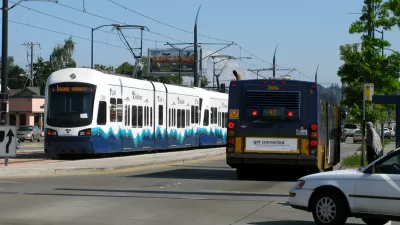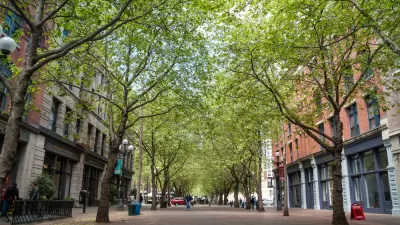Todd Litman
Todd Litman is the executive director of the Victoria Transport Policy Institute.
Contributed 445 posts
Todd Litman is founder and executive director of the Victoria Transport Policy Institute, an independent research organization dedicated to developing innovative solutions to transport problems. His work helps to expand the range of impacts and options considered in transportation decision-making, improve evaluation methods, and make specialized technical concepts accessible to a larger audience. His research is used worldwide in transport planning and policy analysis.
Mr. Litman has worked on numerous studies that evaluate transportation costs, benefits and innovations. He authored the Online TDM Encyclopedia, a comprehensive Internet resource for identifying and evaluating mobility management strategies; Transportation Cost and Benefit Analysis: Techniques, Estimates and Implications, a comprehensive study which provides cost and benefit information in an easy-to-apply format; and Parking Management Best Practices, the most comprehensive book available on management solutions to parking problems. Mr. Litman is a frequent speaker at conferences and workshops. His presentations range from technical and practical to humorous and inspirational. He is active in several professional organizations, including the Institute of Transportation Engineers and the Transportation Research Board (a section of U.S. National Academy of Sciences). He is a member of the Editorial Advisory Board of Transportation Research A, a professional journal.

Breaking the Cycle of Automobile Dependency
Many current planning practices reinforce a cycle of increased automobile use, more automobile-oriented community redevelopment, and reduced mobility options. There are good reasons to break this pattern.

What the Market Can Bear: Defining Limits to Inclusive Housing Requirements
Inclusivity requirements should be used with caution. Increasing the portion of below-market housing units tends to reduce total housing production, particularly moderate-priced homes.

The Automobile as Prison. The City as Freedom.
The automobile has been pitched as a machine for freedom, but travelling inside a small metal box, strapped to a chair, forced to focus on the road while your life is threatened by two-ton projectiles doesn’t sound like freedom to David Levinson.

Reducing Motor Vehicle Traffic in Cities
The World Resources Institute's Transformative Urban Mobility program has produced two new guides that succinctly describe why and how cities can implement transportation demand management policies and programs.

Seeing the Urban Forest for the Trees
It is important to focus on forests rather than individual trees when evaluating trade-offs between infill and sprawled development.

























